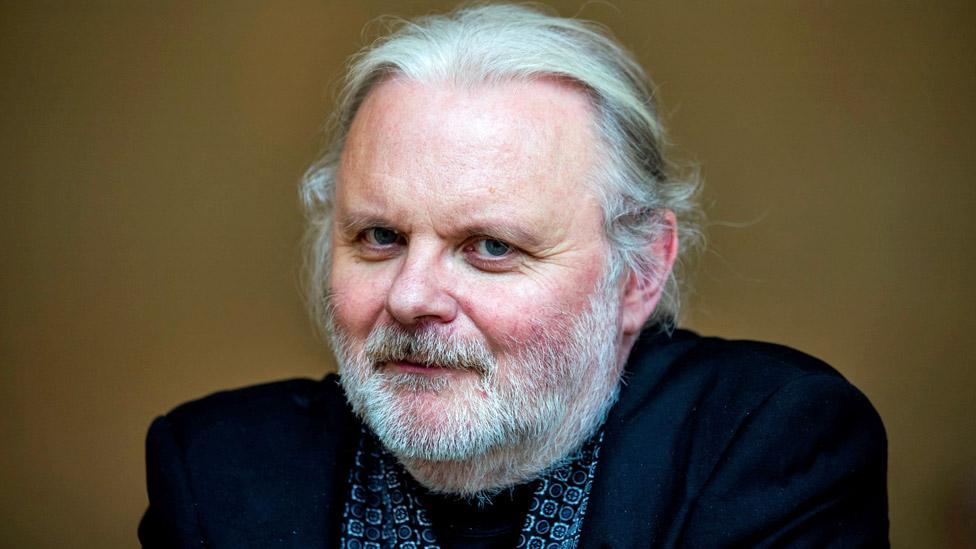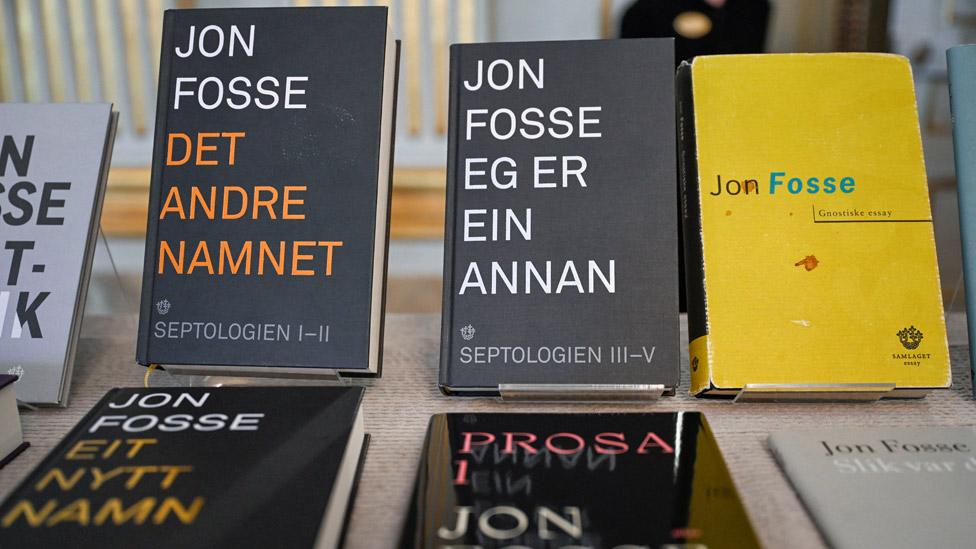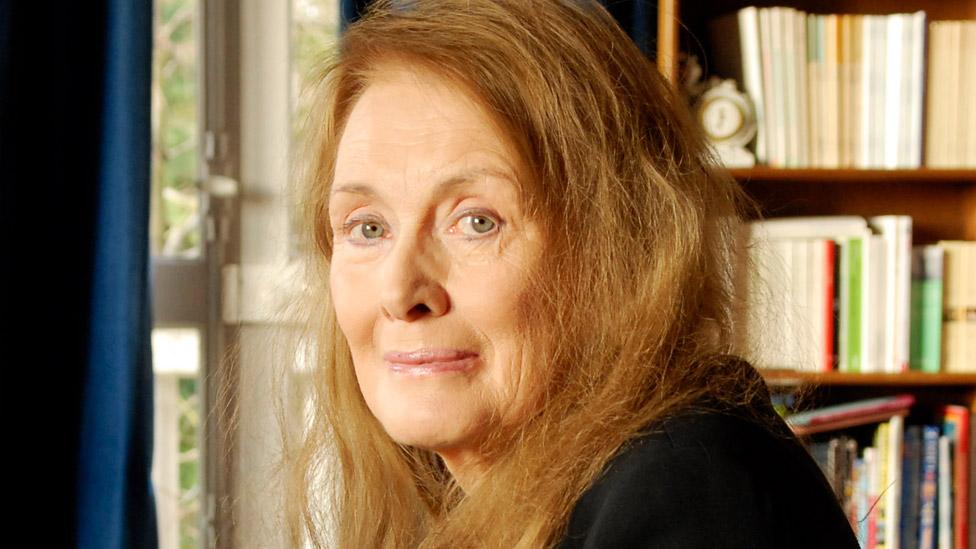Jon Fosse: 'Innovative' Norwegian author and playwright wins Nobel Literature Prize
- Published

Nobel Prize officials said Jon Fosse's work focused on "anxieties, insecurities, questions of life and death"
Norwegian author, playwright and poet Jon Fosse has been named the winner of the Nobel Prize in Literature.
The Swedish Academy said on Thursday it was for his "innovative plays and prose which gives voice to the unsayable".
As well as the prize, Fosse receives 11 million Swedish kronor (£822,000).
He admitted he was "overwhelmed and somewhat frightened" by the news. Norwegian Prime Minister Jonas Gahr Støre posted, external: "All of Norway congratulates and is proud today!"
He wrote that the prize was "a great recognition of a unique authorship that makes an impression and touches people all over the world".
The celebrated 64-year-old's major works, written in the Nynorsk variation of Norwegian, include the Septology series of novels, Aliss at the Fire, Melancholy and A Shining.
Speaking to Norwegian state broadcaster NRK, Fosse said he had "prepared myself mentally for the last decade" that this day might come.
Previous winners of the prize - given for a body of work, rather than a single book - have included Toni Morrison, Doris Lessing, Gabriel Garcia Marquez and Bob Dylan.
Born in 1959, in Haugesund on the west coast of Norway, Fosse grew up in Strandebarm. At the age of seven he nearly died in an accident, which he has said was "the most important experience" of his childhood and one that "created" him as an artist.
Fosse's works span 40 plays - performed around the world in numerous languages - plus novels, essays, poetry collections, children's books and translations.
'Fosse minimalism'
The prize organisers said Fosse could be compared to previous great modernist writers like fellow Norwegian Tarjei Vesaas as well as Samuel Beckett, Thomas Bernhard, Georg Trakl and Franz Kafka.
Nobel committee chairman Anders Olsson said he was "a fantastic writer in many ways". "He touches you so deeply when you read him, and when you have read one work you have to continue," he said.
"What is special with him is the closeness in his writing. It touches on the deepest feelings that you have - anxieties, insecurities, questions of life and death - such things that every human being actually confronts from the very beginning.
"In that sense I think he reaches very far and there is a sort of a universal impact of everything that he writes. And it doesn't matter if it is drama, poetry or prose - it has the same kind of appeal to this basic humanness."

His novels, the academy said, are "heavily pared down to a style that has come to be known as 'Fosse minimalism'".
Olsson praised plays including Someone Is Going to Come - for its "radical reduction of language and dramatic action" - as well as The Name, Dreams of Autumn and Death Variations.
Fosse's "magnum opus in prose", he said, was his recent Septology - made up of seven parts collected in three volumes: The Other Name, I Is Another and A New Name.
The monologue, which progresses seemingly endlessly and without a single full stop over a timespan of seven days, depicts an elderly artist speaking to himself as another person.
"The Septology is a major work, being at the same time as his attempt at reconciliation with his own fate, an elegy to his dead wife [and] dealing with his own career as a painter," Olsson said.
For readers seeking something shorter, Fosse's 2000 novella Morning and Evening is "a wonderful little piece".
The Nobel prizes, awarded since 1901, recognise achievement in literature, science, peace and latterly economics.
The literature prize is awarded to "the person who shall have produced in the field of literature the most outstanding work in an ideal direction", according to the 1895 will of Swedish businessman and philanthropist Alfred Nobel.
There was no public shortlist for the award, but Salman Rushdie, Can Xue, Margaret Atwood and Haruki Murakami were thought to be among the other possible contenders.
Last year, it was won by French writer Annie Ernaux, for what the panel said was an "uncompromising" 50-year body of work exploring "a life marked by great disparities regarding gender, language and class".
Related topics
- Published6 October 2022
